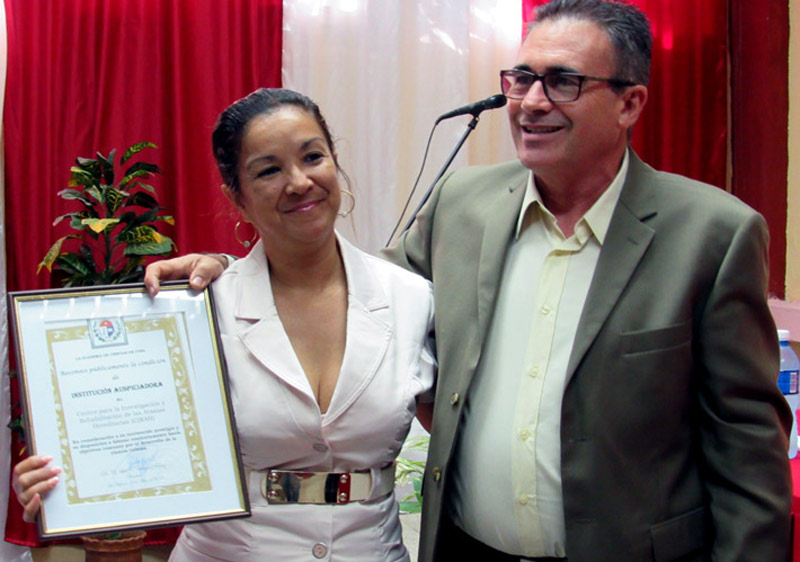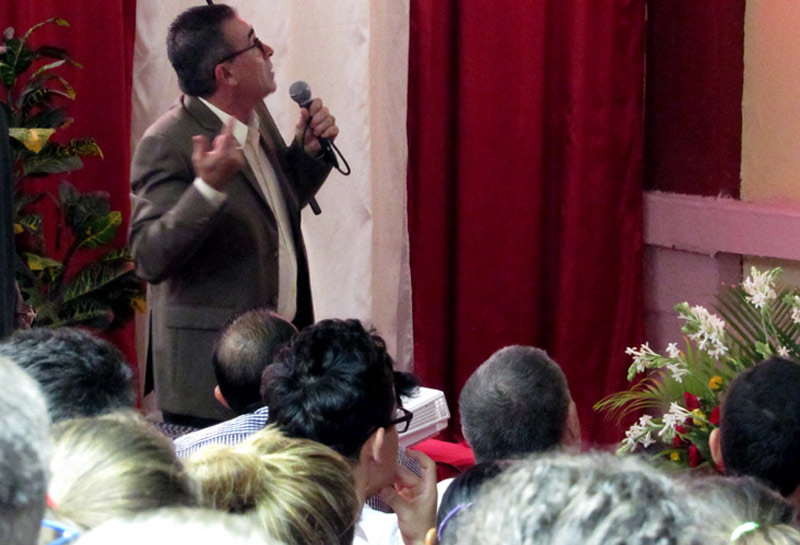Cuban Academy Bets on Science, Technology and Innovation
- Written by Lourdes Pichs Rodríguez
- Published in Health
- Hits: 2216

The President of the Cuban Academy of Sciences (ACC), Dr. Luis Velázquez Pérez said in Holguín that technology and innovation are now more necessary than ever to overcome the complex challenges facing Cuban society.
During a keynote address at the University of Medical Sciences of Holguín on the work developed by the ACC and its role in integration and scientific development, Dr. Velázquez said that Cuba needs to increase labor productivity and export capacity, in which the researchers play an important role.
He stressed the need to support doctoral training in all branches from an early age and cited the example of taking this idea to the Medical degree to start working from the second or third year with students with a scientific research inclination.

He mainly referred to the work with young people, indisputable substitutes of today's scientists. "Today the ACC develops a very intentional work with associates that total 64, but in a general sense it is necessary to continue deepening to grow, as there’s talent among young people".
Before an audience made up of students and professors from the University of Medical Sciences, as well as outstanding doctors of the province, the President of the ACC awarded the recognition of the sponsoring institution to the Center for Research and Rehabilitation of Ataxias (Cirah), for its results, today with more than a dozen researchers and 14 awards of the ACC from their contributions in the study of this inherited-degenerative disease, with high prevalence in the province of Holguín.
The Cuban Academy of Sciences is composed of 405 scientists of relevant merits; In addition to 177 titular academics, 113 of merits and among its most immediate objectives is to create subsidiaries and alternative centers in different regions of the country.
The ACC has 214 Science, Technology and Innovation Entities (ECTI), more than 86,400 workers, 15,999 doctors of sciences and 335 with a double doctorate.
